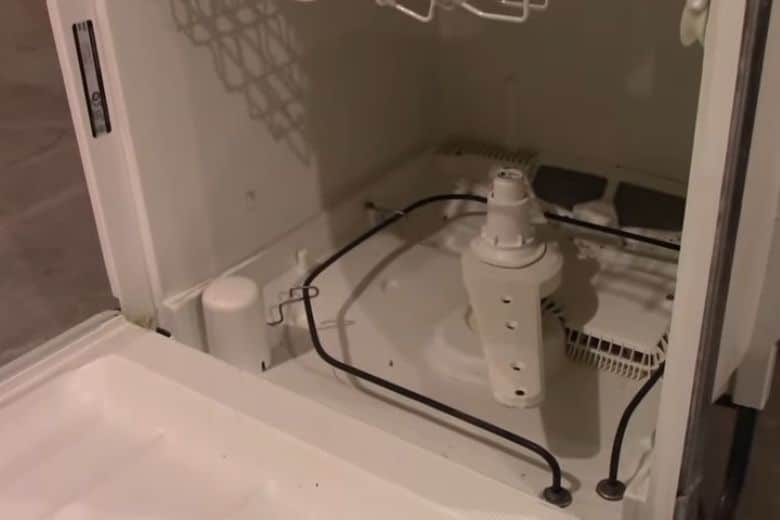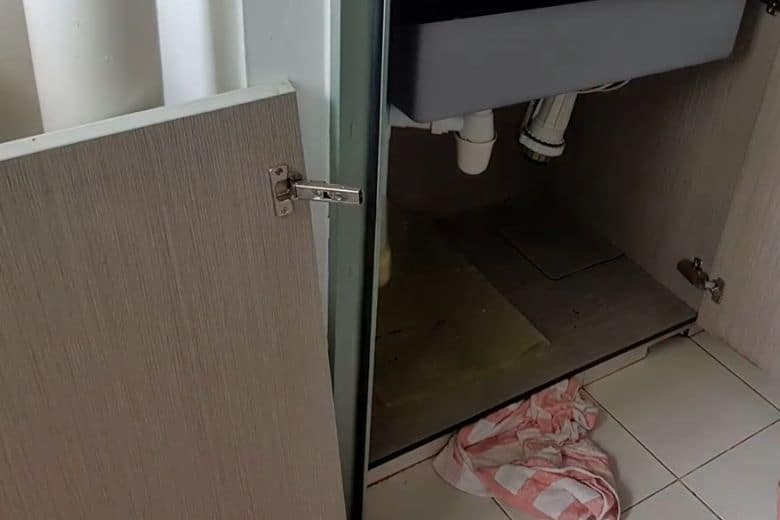Ants are fascinating creatures but become a nuisance when they invade our homes, including kitchen appliances. Accordingly, discovering ants in dishwasher can be a frustrating experience.
Suddenly you will begin to worry, why are these pesky intruders making a home out of your dishwasher?
Well, a dishwasher provides everything an ant colony could want. Ants are driven by two primary needs: the search for food and moisture. Being a consistent source of both, your dishwasher becomes an appealing destination for these tiny creatures. But ants pose both hygiene concerns and potential damage to your appliance.
Consequently, knowing how to get rid of ants in a dishwasher becomes mandatory. Eventually, today we will share effective, tried-and-true strategies for eliminating these uninvited guests. These tactics, backed by professional pest control experts, include thorough cleaning, natural deterrents, and ant baits or insecticides if needed.
Without further talk, let’s jump into the details.
Signs of Ants in Dishwasher
If you suspect ants have taken up residence in your dishwasher, watch out for the following signs:
- Presence of live ants crawling in and around the dishwasher
- Trails of ants leading to the dishwasher
- Accumulation of ant debris, such as dead ants or ant eggs
- Unusual smells or odors emanating from the dishwasher
- Food particles or crumbs attracting ants near the appliance
The Problem with Ants in Your Dishwasher
Although ants aren’t the worst pests in your dishwasher – they’re not as scary as roaches or as dangerous as rats. But still, they can create many problems. Have a look.
- Ants spread bacteria: Ants carry bacteria from various sources, potentially contaminating dishes, and utensils, potentially leading to foodborne illnesses.
- Structural damage: Some species can damage the dishwasher’s components, such as wires, leading to malfunctions, expensive repairs, or even replacements.
- Nest building: Dishwashers are ideal for ants to establish nests. Once these nests are built, it becomes challenging to remove the infestation completely.
- Health risks: Certain ant species can cause allergic reactions in some people. In rare cases, their bites can be harmful.
- Food spoilage: Ants may venture from the dishwasher to other kitchen parts, leading to spoiled food and other hygiene issues.
- Persistent infestation: Eradicating ants once they’ve infiltrated a dishwasher can be difficult, leading to ongoing pest control issues.
- Disturbing presence: The simple sight of ants in a place where food is cleaned can be disturbing and unpleasant, impacting the overall comfort of your home.
- Damage to Your Dishwasher: Besides the ‘ick’ factor and health risks, ants can damage your dishwasher. They might clog up the pipes, causing your dishwasher to malfunction. It could lead to expensive repairs or even a full replacement.
Step-by-Step Process of How to Get Rid of Ants in Dishwasher
When you’ve confirmed an ant infestation in your dishwasher, it’s time to act. Let’s explore a few effective methods to get rid of them.
Step 1: Clean the Dishwasher Thoroughly
Start by cleaning your dishwasher thoroughly. Remove any food particles stuck in the filter, racks, or corners. You can use a dishwasher-safe brush to scrub off any food residues. Consider running an empty cycle with a dishwasher cleaner for a deep clean, widely available in stores.
Step 2: Identify and Seal Entry Points
After cleaning, the next step is identifying the ants’ origin. They could be entering through small gaps or holes around the dishwasher. Once you identify these points, seal them up. You can use caulk or a similar sealing agent for this purpose.
Pay special attention to the areas where plumbing or electrical connections enter the dishwasher.
Step 3: Spray Natural Repellents
Natural remedies can be used to deter ants. The strong smell disrupts their scent trails, disorienting them and deterring further infestation.
- White vinegar: Create a mixture of equal parts white vinegar and water. Spray this solution in and around your dishwasher to repel ants.
- Lemon juice: Squeeze fresh lemon juice and spread it along the dishwasher’s edges and entry points. The citrus scent acts as a natural deterrent.
- Essential oils: Ants dislike certain essential oils like peppermint, tea tree, and lavender. Mix a few drops of these oils with water and spray the solution near the dishwasher.
- Citrus Peel Extract: Boil citrus peels in water and strain to make an extract. Now spray this citrus extract inside your dishwasher to repel ants.
- Cinnamon Solution: Mix one to two tablespoons of cinnamon powder in a cup of warm water. Spray this cinnamon solution throughout the dishwasher to deter ants.
Step 4: Using Chemical Solutions
Consider using chemical solutions when natural remedies fail to eradicate ant infestation. However, exercise caution when handling pesticides and follow the instructions carefully. Some options to consider include:
- Use Ant Baits: Ant baits can be quite effective in eliminating ants. These products attract ants with a food source that contains a slow-acting poison. The ants return the bait to their colony, eliminating the entire population. However, remember to place these baits near the dishwasher instead of inside. Certainly, you wouldn’t want any toxic substances mixed with your dishes.
- Ant sprays: Spray ant insecticides around the dishwasher, focusing on entry points and ant trails.
Note: Remember to keep children and pets away from these chemical solutions and ensure proper ventilation during and after use.
Step 5: Remove Attractants
You can eliminate attractants in your kitchen to discourage ants from being drawn to your dishwasher. Follow these steps:
- Wipe down countertops and clean up spills promptly.
- Store food in airtight containers to prevent ants from accessing it.
- Empty and clean your garbage regularly, as it can be a major food source for ants.
- Keep your kitchen clean and free from crumbs or food debris.
Step 6: Hiring Pest Control Professionals
You may need to resort to professional pest control services for severe infestations. They are equipped with potent pesticides and have the expertise to handle the situation safely and effectively.
Preventing Ants in Dishwashers
Prevention is key when it comes to keeping ants out of your dishwasher. Here are some proactive measures y Rinse dishes before loading them into the dishwasher to eliminate food residue that may attract ants.
- Run the dishwasher regularly to avoid stagnant water and food debris that can attract ants.
- Clean the dishwasher thoroughly and regularly, carefully considering corners and hidden areas.
- Ensure the dishwasher door seals properly to prevent ants from entering.
- Check for and promptly repair any leaks in the dishwasher, as ants are attracted to moisture.
- Store food items properly in sealed containers and clean food spillages immediately.
- Dispose of garbage regularly and ensure your trash cans are sealed.
- Consider natural deterrents around the dishwasher.
- Seal cracks or holes around the kitchen area through which ants might enter.
- Use ant bait or insecticide if the problem persists or consider hiring a pest control service.
- Clean the filter and spray arms according to the manufacturer’s instructions.
- Inspect the dishwasher for signs of leaks or damage.
Frequently Asked Questions
What types of ants are commonly found in dishwashers?
Answer: Generally, carpenter ants, sugar ants, and pharaoh ants are the most common types of ants found in dishwashers.
Can ants damage my dishwasher?
Answer: No, ants do not typically cause direct damage to dishwashers. However, their presence can compromise the appliance’s cleanliness and hygiene.
Are chemical solutions safe to use around food utensils?
Answer: Chemical solutions designed for use in kitchens are safe when used as directed. However, it’s essential to read and follow the instructions provided on the product packaging to ensure proper usage and avoid any potential health risks.
How long does it take to eliminate an ant infestation in a dishwasher?
Answer: The time required to eliminate an ant infestation can vary depending on the severity of the problem and the methods employed. It may take a few days to several weeks to completely eradicate the ants.
Are there any risks associated with having ants in my dishwasher?
Answer: Apart from being a nuisance, ants could potentially carry pathogens that can contaminate your dishes. In rare cases, some species of ants can damage the dishwasher’s electrical wiring.
If I move my dishwasher, will the ants go away?
Answer: Merely moving the dishwasher might not solve the problem if the ants are attracted by food remnants or moisture. The area and dishwasher require a comprehensive cleaning, in addition to implementing strategies to discourage ants.
Conclusions
Dealing with ants in the dishwasher is disturbing and time-consuming, but you have no option left. Because having ants in your dishwasher is potentially a damaging issue. Therefore, you must act as soon as you discover this tiny creature in your appliance.
Always remember, prevention is always better than cure. Practicing cleanliness and regular maintenance help go a long way in keeping your dishwasher and home ant free.
Best of luck!
Paul Newman is a blogger who writes about plumbing and home improvement. Over the past 20 years, I have worked as a plumber. My passion is to share my knowledge and experience with others to improve their homes.




